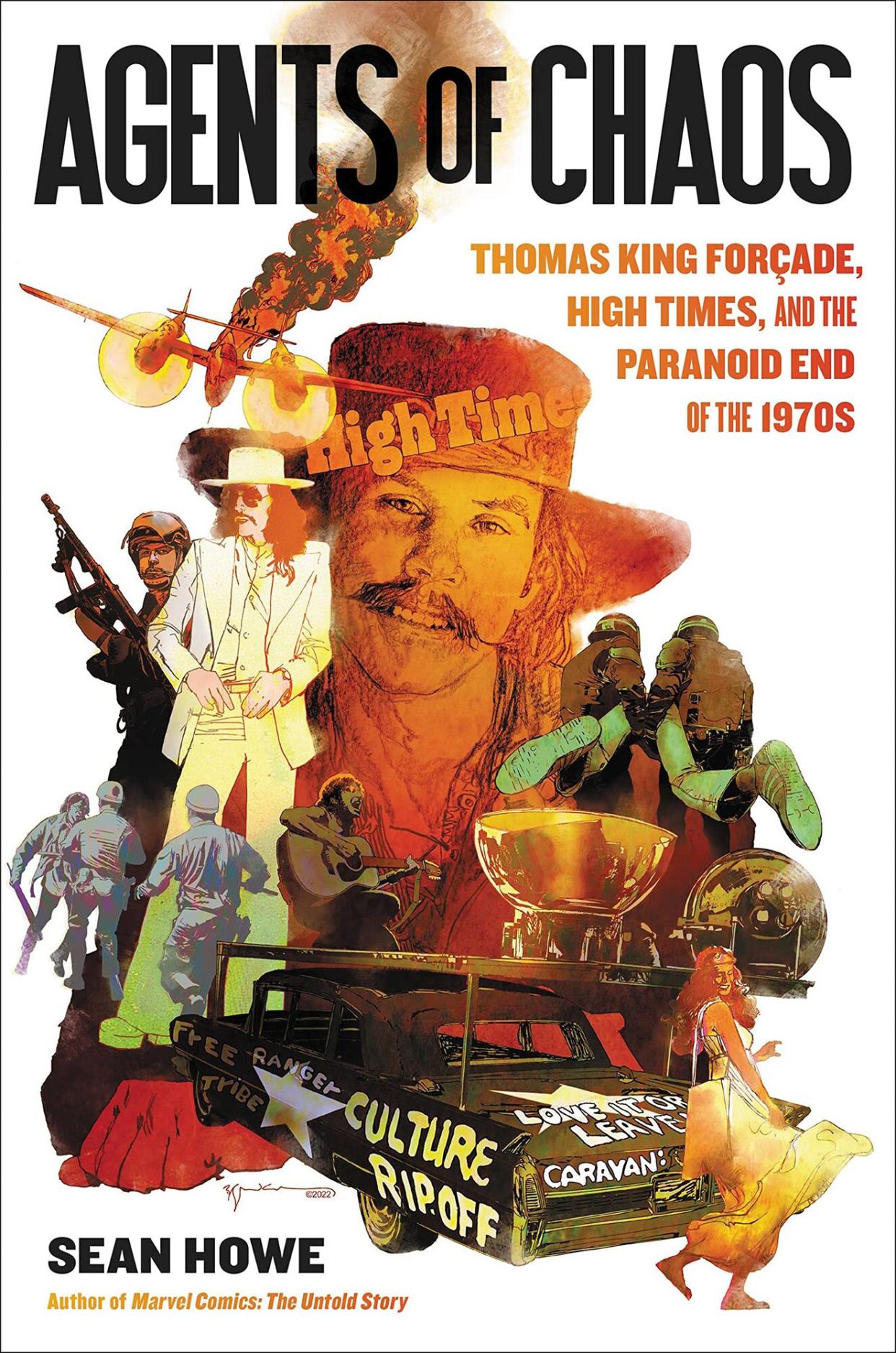5 far out facts about the founder of High Times magazine

- Oops!Something went wrong.Please try again later.
- Oops!Something went wrong.Please try again later.
- Oops!Something went wrong.Please try again later.
- Oops!Something went wrong.Please try again later.
Dotdash Meredith and Yahoo Inc. may earn commission or revenue on some items through the links below.
The just-published Agents of Chaos: Thomas King Forcade, High Times, and the Paranoid End of the 1970s recounts the bizarre life of enigmatic counterculture figure Forcade, founder of the marijuana-centric magazine High Times. As detailed by Sean Howe, author of Marvel Comics: The Untold Story and former EW contributor, the book truly is a strange trip. The troubled Forcade was a prank-loving leader of the anti-establishment movement which rose during the '60s, earned a fortune publishing High Times in the '70s, and ultimately committed death by suicide in 1978. The result is a fascinating, anecdote-packed tale of drugs, guns, and magazine publishing. Here are five tales from the book that will blow your mind, man.

Hachette Books Cover of 'Agents of Chaos'
He had a crazy car
In the summer of 1970, Forcade agreed to join the Medicine Ball Caravan, a traveling troupe of musical acts and hippies financed by Warner Bros., which planned on turning the extravaganza into a Woodstock-style documentary. As Howe writes, "A French film crew would film twenty vehicles' worth of musicians, dealers, hustlers, and just plain zonked-out stoners on their three-week patchouli-scented reality show." For the occasion, Forcade bought a 1965 Cadillac limousine which he effectively transformed into a mobile concert facility, welding a steel and plywood stage onto the car's roof and also equipping the automobile with a plexiglass dome which served as a sound-mixing booth. Driving from a conference in Wisconsin to meet the Caravan in the Southwest Forcade "misjudged a highway clearance and the top half of his Lucite dome was sheared off, but after a quick glance at the detritus in the rearview mirror, he kept his foot on the gas and raced south."
Hunter S. Thompson thought Forcade was 'too outrageous'
In September, 1970, Forcade, journalist Ron Rosenbaum, and musician David Peel visited Newport to witness — and disrupt — the America's Cup sailing contest with gonzo journalist Hunter S. Thompson and artist Ralph Steadman. As Howe describes in his book, "The troublemakers chartered a yacht, raised the Jolly Roger flag, and planned to charge into the race...On the first night at sea, the Coast Guard boarded the ship and arrested Forcade — who had brought along his Minuteman speaker system and tapes of the MC5 — for disturbing the peace...Steadman called their Newport adventure 'a dress rehearsal for Fear and Loathing in Las Vegas,' referring to the 1971 book that would come to define gonzo journalism. Forcade and his crew had not seen the escapade through to the end, however — Hunter S. Thompson had thrown them off the boat for 'being too outrageous.'"
Abbie Hoffman once punched him in the face
Forcade had a contentious relationship with Abbie Hoffman, founder of the Youth International Party, political home of the so-called Yippies. While in Miami to demonstrate at the Democratic National Convention in 1972 Forcade attempted to deliver a birthday cake to YIP co-founder Jerry Rubin and a "retirement certificate" to the then 36-year-old Hoffman. "Obviously, they had their swords drawn on each other, and this was not really an attempt to ameliorate anything," Yippie member Jerry Gorde is quoted as saying in Agents of Chaos. "But Abbie wanted to go down and f--- with Tom." According to Gorde, when another Yippie opened his jacket and showed Forcade the handle of his gun, "Tom took his eyes off Abbie, and Abbie cold-cocked Tom in the face. Tom fell backward, landed on the ground with the cake, and we walked back into the hotel and up to the rooms."

Daniel Entin Thomas King Forcade
The High Times founder was a big-time drug dealer
Forcade made a ton of money from the Manhattan-based High Times, which proved an instant hit after the first issue was published in 1974. Simultaneously, he was selling literally tons of weed from a space he rented at 714 Broadway. In Agents of Chaos, Howe explains how Forcade and an associated named Tim Hughes, "purchased fifty empty guitar cases for transporting product in and out of the building — although occasionally, when more was on hand, they'd pack it in crates, dress up in jumpsuits, and move everything in and out with hand dollies." For a spell, the High Times staff was also based at 714 Broadway which increased Forcade's feelings of paranoia. The magazine founder instituted a policy that photo shoots of contraband should take place elsewhere and that members of staff should only bring enough drugs to the office to "get them through the day."
He tried to make a documentary about the Sex Pistols
In one of his last adventures, Forcade teamed with a young filmmaker named Lech Kowalski and set out to make a documentary about the Sex Pistols' 1978 tour of America despite opposition from the band's record company, which once again happened to be Warner Bros. According to the label's director of artist relations Ted Cohen, "Forcade wanted to do a pirate documentary, a rebel documentary. Forcade thought the Sex Pistols were the first sign of Armaggedon and the complete disillusionment with the American government, and this was going to be the beginning of chaos." When Kowalski's film crew was accosted by the Pistols' roadies at a show in Atlanta, GA., Forcade's chauffeur pulled out a gun. Later, according to one account, Forcade considered kidnapping the band's heroin-addicted bassist Sid Vicious and smuggling him into Jamaica so he could attend rehab. Eventually, the band split up before the documentary could be completed.
Related content:

